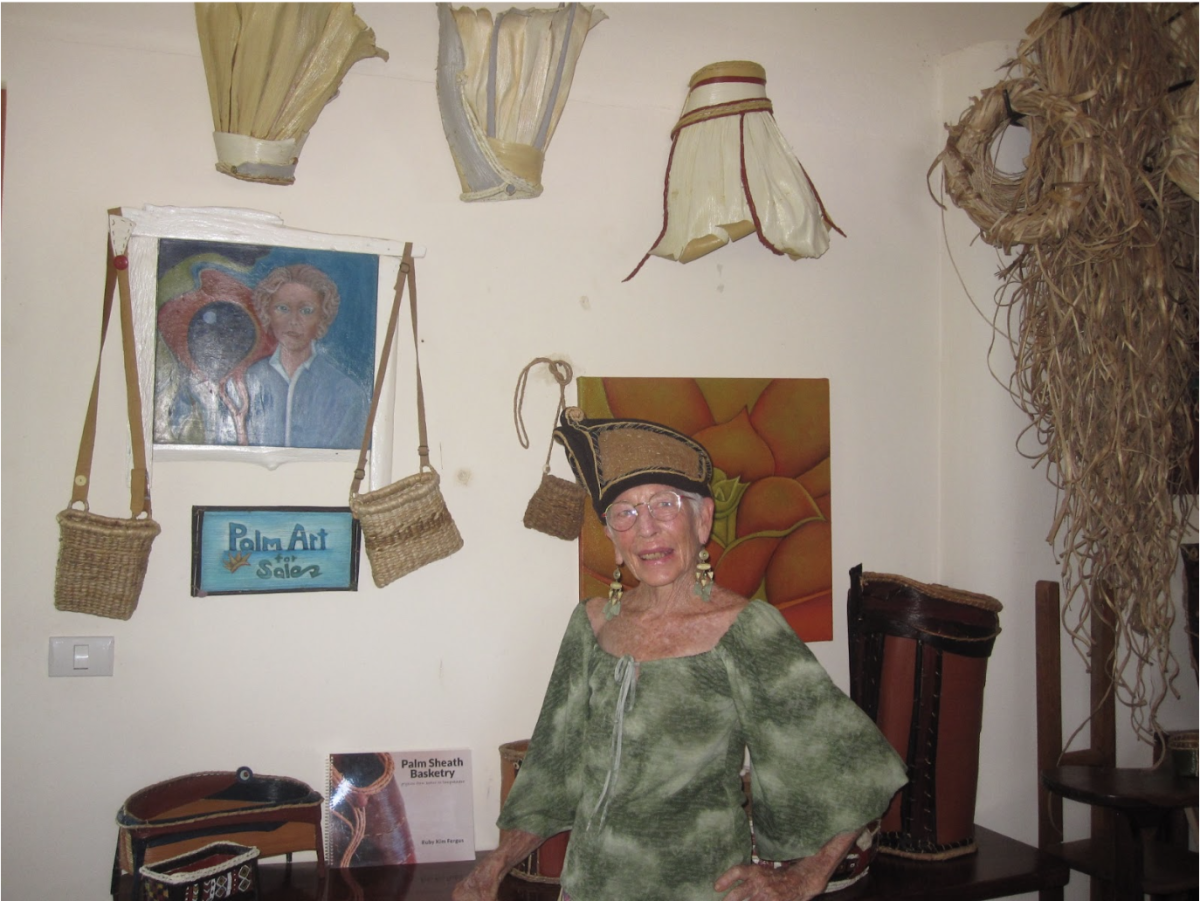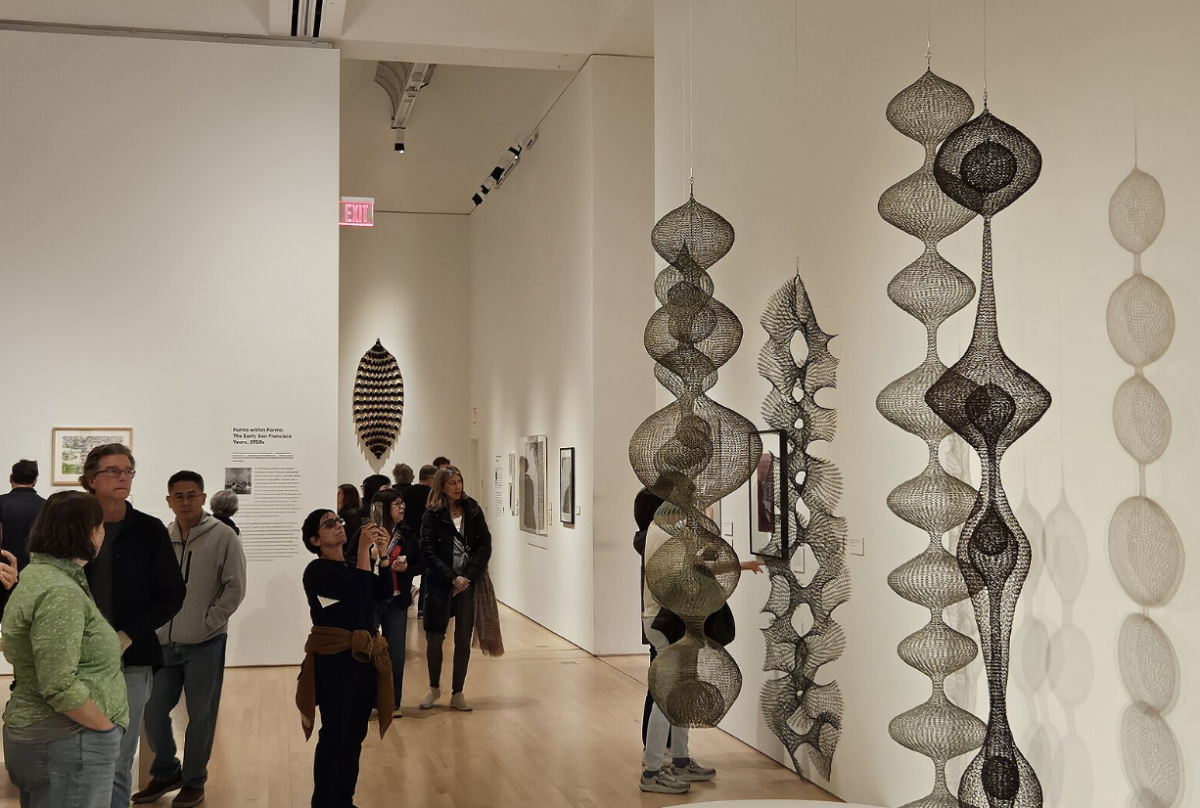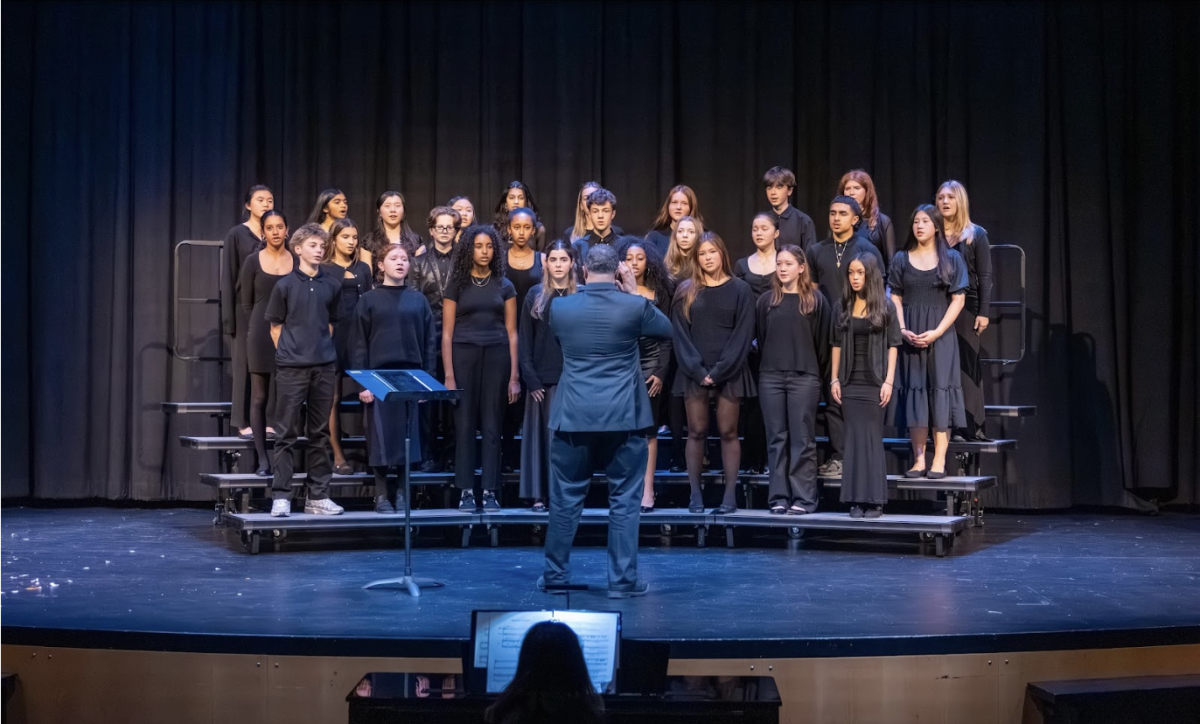Gracie Hays
A & E Editor
High school life is often inaccurately reflected in theater because it lacks the emotional intricacies hidden beneath the surface, which results in one-dimensional characters rarely found in the hallways of any real high school.
Berkeley Reps’ first play of the season, Yellowjackets attempts to portray Berkeley High School in the mid-1990s, a time when the school was faced with rampant racism linked with the controversial tracking system which claimed to place students in classes appropriate for their learning level. However, many tracking systems, including Berkeley High’s, ultimately created a racially segregated school in which a student could spend an entire four years without making a friend of a different race.
Although Yellowjackets touches upon profoundly relevant issues, at times the dialogue is so stilted and unnatural that the issues seem watered down. While colloquial phrases usually help identify a character, the dialogue seems to lock characters into shallow personas almost exclusively defined by their race. What’s more, the overuse of slang gives a distant tone that giving the sense that the audience is watching a bunch of middle aged adults attempting to relive their glory days in high school by flipping their hats backwards and swapping the vernacular terms. By the end of the first act, the only sense the audience has of the main character is defined by his race and use of colloquial speech, or lack there of, he uses.
The beginning of the play starts out with a fist fight, and from then on every scene is at the height of intensity, to the point that there is no rising or falling action. With a series of climactic scenes, but no build up or let down, characters are placed in a stagnant environment and have no opportunity to further develop. With 22 characters in the play, the story seems cluttered with side plots that drag the story astray. Lasting two and a half hours, Yellowjackets covers a lot of terrain, but there is no sense of journey. Had the play been cut to be one hour long, the message of the play could be more hard hitting and less melodramatic.
With a somewhat hollow dialogue, the only sense of the characterization and mood of Berkeley High is through the graffiti-covered set consisting of a chain link fence and a row of lockers. The set, although artistically rendered, seems to fit the cliché of a public high school and fails to shed a new light on themes of the script. A well-written script should create a play that can be performed in a living room, void of a fancy set or props, yet still having the same meaning that will give audience members a new perspective. More often than not, the set serves as a crutch for mediocre and at times, corny dialogue.
Perhaps the most promising aspect of the play is the double role of an adult and a student assigned to each actor. The actors skillfully interchange parts to the point where the audience doesn’t link certain characters with the same actor. If the play had been shortened, the interchanging roles would have been more successful in highlighting the lack of adult maturity and leadership at Berkeley High.
Actor Craig Piaget was particularly apt in his portrayals of the character Trevor and the newspaper advisor Mr. Terrence who seemed to be polar opposites. The character of Trevor was shy, self-conscious, and well-intentioned while Piaget’s adult persona was disconnected with his students and out of touch with the realities of racism surrounding the school.
The historical context of Berkeley High in the ’90s is captivating, but Yellowjackets fails to add new insight into the issue of racism.
Yellowjackets plays through Oct. 12. Tickets $22-$63. www.berkeleyrep.org








